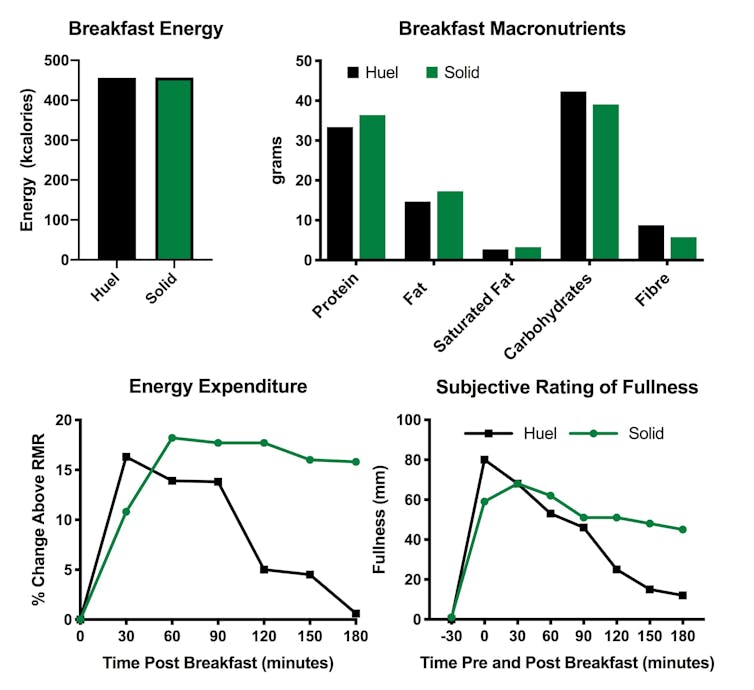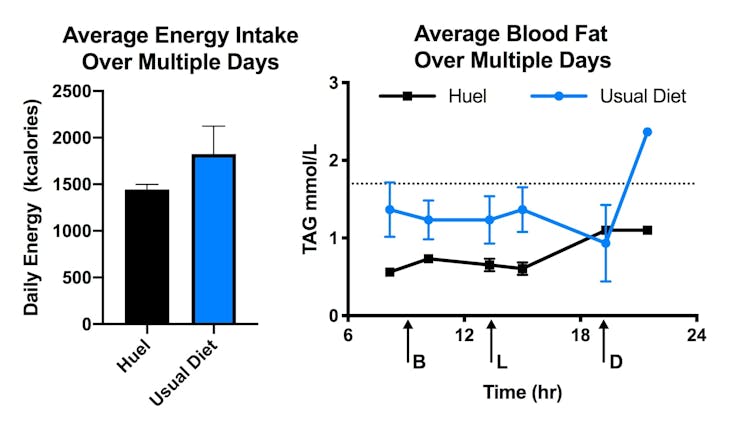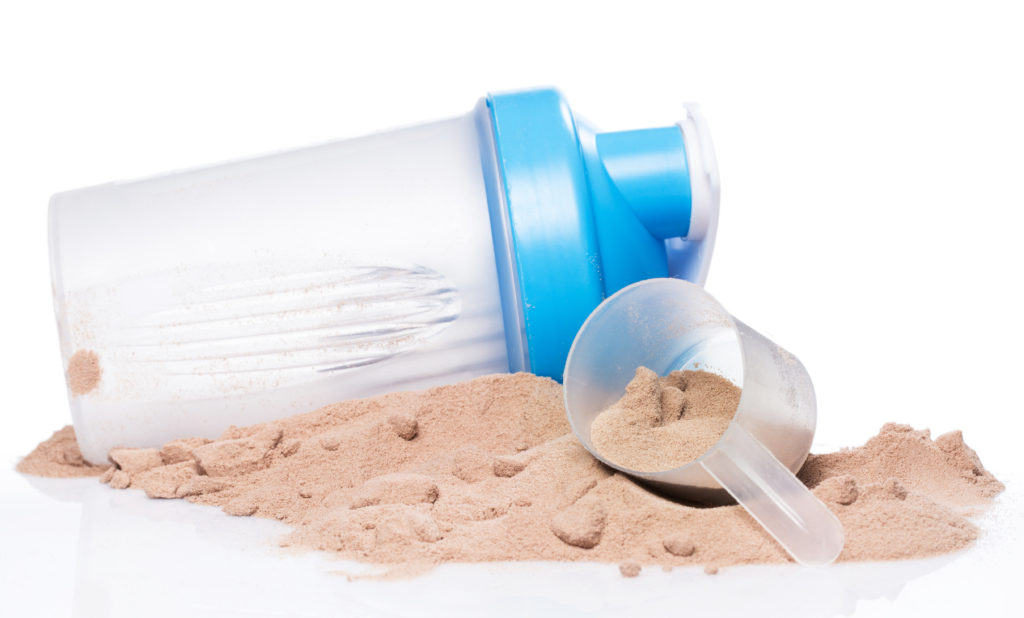Our bodies need more than just Huel, we need a variety of essential nutrients and fibres you can only get from food – including polyphenols… Most nutrition experts don’t consider meals a tick box of nutrients that you need to get into your body – food structure plays an important role in reducing appetite and maintaining a healthy gut microbiome.
Imagine a synthetic product that can give your body all the essential nutrients it needs to survive, is easy to prepare, affordable, and has a low environmental impact. While it might sound too good to be true, this is what Huel, a vegan powdered meal replacement product, claims it is. Our team decided to put Huel to the test on an episode of the BBC 2 series Trust Me I’m a Doctor to see what effects it had on overall health.
We designed an experiment specifically for Alain Gregoire, the host of the programme, to examine both the immediate and longer-term effects of consuming Huel over ten days. We had Alain start by swapping his regular breakfast for Huel, before gradually increasing his intake until all of his daily food intake had been replaced by Huel.
We closely monitored Alain’s calorie expenditure and hunger three hours after consuming Huel, while also tracking his weight, blood glucose, blood fat and cholesterol levels.
In the short term, we found that Alain burned fewer calories after the liquid Huel breakfast, and felt hungrier sooner than he did after a breakfast of solid food containing a similar calorie and macronutrient (fat, protein and carbohydrates) content as Huel. Alain also lost 1.6kg from consuming fewer calories than normal, as he struggled to drink the four to five Huel shakes daily he needed to maintain his body weight.
In the last four days of the study, when he consumed only Huel, his blood fat levels were lower, especially in the evenings. On his regular diet, Alain’s blood fat had previously measured above the healthy range after his normal evening meal. High levels of blood fat can be a risk factor for heart disease, so if this reduction could be maintained, this could be a possible benefit for Alain in consuming Huel in replace of his normal dinner.
Huel meal replacement
To see how Huel compared to eating a healthy meal, we first needed to make sure that what we were comparing to Huel was similar. Using a nutritional analysis software, we designed a solid breakfast meal closely matching the energy and macronutrients in Huel. Alain’s solid breakfast contained toast, smoked salmon, spinach, egg, yoghurt, fruit and nuts.
We then used a technique called indirect calorimetry, which analyses the amount of oxygen and carbon dioxide in a person’s breath – showing how fast their body is burning calories. We also asked Alain to rate how hungry and full he felt on a scale of 0-100. We measured this every half an hour for three hours after the two different breakfasts.
After Huel, the number of calories Alain burned went up and down much faster in comparison to the solid meal. This suggests the calories needed to digest and process Huel was lower than the solid meal. And, although Alain felt fuller immediately after Huel, this fullness faded quickly. After the solid meal both the number of calories Alain’s body used, and his fullness, were sustained for longer after the meal.

To examine the longer-term effects of consuming Huel, we had Alain gradually increase the amount of Huel he drank in order to let his body adjust to it. First, we measured his body weight. Then, for three days Alain tracked his normal diet and also pricked his finger before and after meals to monitor his blood glucose, blood fat and cholesterol levels.
After three days of his normal diet, Alain started replacing one of his meals with Huel for three days. Then, for the following three days, he replaced two meals with Huel. Finally, the last four days of the study, Alain replaced all his meals with Huel. During the last four days of the study, he again measured his blood glucose, blood fats and cholesterol.
Before the study, Alain’s blood fat levels were highest in the evening – possibly because he normally ate his biggest meal then. Interestingly, consuming Huel reduced his blood fat levels throughout the day, and were notably lower in the evening compared to when he ate his normal diet. High blood fat can lead to heart disease. His blood glucose and cholesterol levels were already healthy before the experiment – so there were no changes as a result.

Our findings support what some other studies have previously shown: liquid meals aren’t as satiating as solid food, even if they have similar calories and macronutrients – which might make them difficult to maintain. Solid food stays in the stomach longer while it digests, which suppresses appetite.
Liquid diets might also be difficult to maintain for social reasons. Alain found he couldn’t go out and eat with friends, and missed the joy of preparing and eating food with others. But compared with other liquid meal-replacement products, Huel does have a better nutritional profile, with more diverse ingredients.
Our bodies need more than just Huel, we need a variety of essential nutrients and fibres you can only get from food – including polyphenols, which are found in brightly colour fruit and vegetables and are essential for improving digestion, managing weight, and even reducing the risk of diabetes. Most nutrition experts don’t consider meals a tick box of nutrients that you need to get into your body – food structure plays an important role in reducing appetite and maintaining a healthy gut microbiome. Eating a wide variety of foods is important not just for long-term health, but for the social and cultural role food has in our daily lives.
Read more… Why we shouldn’t all be vegan
Vegan diets are adding to nutritional deficiencies in wealthy countries
Vegan diet: how your body changes from day one
Your gut microbiome can be picky eaters – here’s why it matters
However, it’s worth noting this experiment was done specifically for TV, and only contained a single test subject. While the case was interesting in that it showed unexpected decreases in blood fat levels, whether this could be maintained or would be true for others would need to be tested in a much larger group of people.
J Bernadette Moore, Associate Professor of Obesity, University of Leeds; Mark Hopkins, Lecturer in Nutritional Physiology, University of Leeds, and Matthew Campbell, Nutritional Science, University of Leeds
This article is republished from The Conversation under a Creative Commons license. Read the original article.

